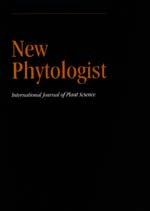Crossref Citations
This article has been cited by the following publications. This list is generated based on data provided by
Crossref.
Mehta, S.K.
Tripathi, B.N.
and
Gaur, J.P.
2000.
Influence of pH, temperature, culture age and cations on adsorption and uptake of Ni by Chlorella vulgaris.
European Journal of Protistology,
Vol. 36,
Issue. 4,
p.
443.
Gaur, J. P.
and
Rai, L. C.
2001.
Algal Adaptation to Environmental Stresses.
p.
363.
Randhawa, Varinder K
Zhou, Fengzhen
Jin, Xiaolei
Nalewajko, Czesia
and
Kushner, Donn J
2001.
Role of oxidative stress and thiol antioxidant enzymes in nickel toxicity and resistance in strains of the green alga Scenedesmus acutus f. alternans.
Canadian Journal of Microbiology,
Vol. 47,
Issue. 11,
p.
987.
Mehta, S. K.
Singh, Alpana
and
Gaur, J. P.
2002.
KINETICS OF ADSORPTION AND UPTAKE OF CU2+BYCHLORELLA VULGARIS: INFLUENCE OF PH, TEMPERATURE, CULTURE AGE, AND CATIONS.
Journal of Environmental Science and Health, Part A,
Vol. 37,
Issue. 3,
p.
399.
Tripathi, B.N.
Mehta, S.K.
and
Gaur, J.P.
2003.
Differential sensitivity of Anabaena doliolum to Cu and Zn in batch and semicontinuous cultures.
Ecotoxicology and Environmental Safety,
Vol. 56,
Issue. 2,
p.
311.
Wenbin, ZHOU
and
Baosheng, QIU
2004.
Mechanisms for Heavy Metal Detoxification and Tolerance in Algae.
Journal of Lake Sciences,
Vol. 16,
Issue. 3,
p.
265.
Poschenrieder, Ch.
and
Barceló, J.
2004.
Heavy Metal Stress in Plants.
p.
249.
Zaki, F. T.
and
Fathi, A. A.
2004.
Impact of copper on some physiological aspects of Nostoc muscorum with special references to the detoxifying role of calcium.
Acta Botanica Hungarica,
Vol. 46,
Issue. 3-4,
p.
423.
Mallick, Nirupama
2004.
Copper-induced oxidative stress in the chlorophycean microalga Chlorella vulgaris: response of the antioxidant system.
Journal of Plant Physiology,
Vol. 161,
Issue. 5,
p.
591.
Bačkor, Martin
Fahselt, Dianne
and
Wu, Charles T
2004.
Free proline content is positively correlated with copper tolerance of the lichen photobiont Trebouxia erici (Chlorophyta).
Plant Science,
Vol. 167,
Issue. 1,
p.
151.
Mendoza-Cózatl, David
Loza-Tavera, Herminia
Hernández-Navarro, Andrea
and
Moreno-Sánchez, Rafael
2005.
Sulfur assimilation and glutathione metabolism under cadmium stress in yeast, protists and plants.
FEMS Microbiology Reviews,
Vol. 29,
Issue. 4,
p.
653.
Sharma, Pallavi
and
Shanker Dubey, Rama
2005.
Modulation of nitrate reductase activity in rice seedlings under aluminium toxicity and water stress: role of osmolytes as enzyme protectant.
Journal of Plant Physiology,
Vol. 162,
Issue. 8,
p.
854.
Tateishi, Yoshiko
Nakagawa, Tsuyoshi
and
Esaka, Muneharu
2005.
Osmotolerance and growth stimulation of transgenic tobacco cells accumulating free proline by silencing proline dehydrogenase expression with double‐stranded RNA interference technique.
Physiologia Plantarum,
Vol. 125,
Issue. 2,
p.
224.
Singh, A. P.
Asthana, R. K.
Kayastha, Aravind M.
and
Singh, S. P.
2005.
A comparison of proline, thiol levels and GAPDH activity in cyanobacteria of different origins facing temperature-stress.
World Journal of Microbiology and Biotechnology,
Vol. 21,
Issue. 1,
p.
1.
Faheed, F. A.
2005.
Effect of lead stress on the growth and metabolism of Eruca sativa M. seedlings.
Acta Agronomica Hungarica,
Vol. 53,
Issue. 3,
p.
319.
Randhir, Reena
Vattem, Dhiraj
and
Shetty, Kalidas
2005.
Antioxidant enzyme response studies in H2O2-stressed porcine muscle tissue following treatment with oregano phenolic extracts.
Process Biochemistry,
Vol. 40,
Issue. 6,
p.
2123.
Sharma, Pallavi
and
Dubey, Rama Shanker
2005.
Lead toxicity in plants.
Brazilian Journal of Plant Physiology,
Vol. 17,
Issue. 1,
p.
35.
Kumar Srivastava, Ashish
Bhargava, Poonam
Mishra, Yogesh
Shukla, Bideh
and
Chand Rai, Lal
2006.
Effect of pretreatment of salt, copper and temperature on ultraviolet-B-induced antioxidants in diazotrophic cyanobacteriumAnabaena doliolum.
Journal of Basic Microbiology,
Vol. 46,
Issue. 2,
p.
135.
Tripathi, B.N.
Mehta, S.K.
Amar, Anshu
and
Gaur, J.P.
2006.
Oxidative stress in Scenedesmus sp. during short- and long-term exposure to Cu2+ and Zn2+.
Chemosphere,
Vol. 62,
Issue. 4,
p.
538.
RANDHIR, REENA
VATTEM, DHIRAJ A.
and
SHETTY, KALIDAS
2006.
ANTIOXIDANT ENZYME RESPONSE STUDIES IN H2O2-STRESSED PORCINE MUSCLE TISSUE FOLLOWING TREATMENT WITH FAVA BEAN SPROUT EXTRACT AND L-DOPA.
Journal of Food Biochemistry,
Vol. 30,
Issue. 6,
p.
671.


